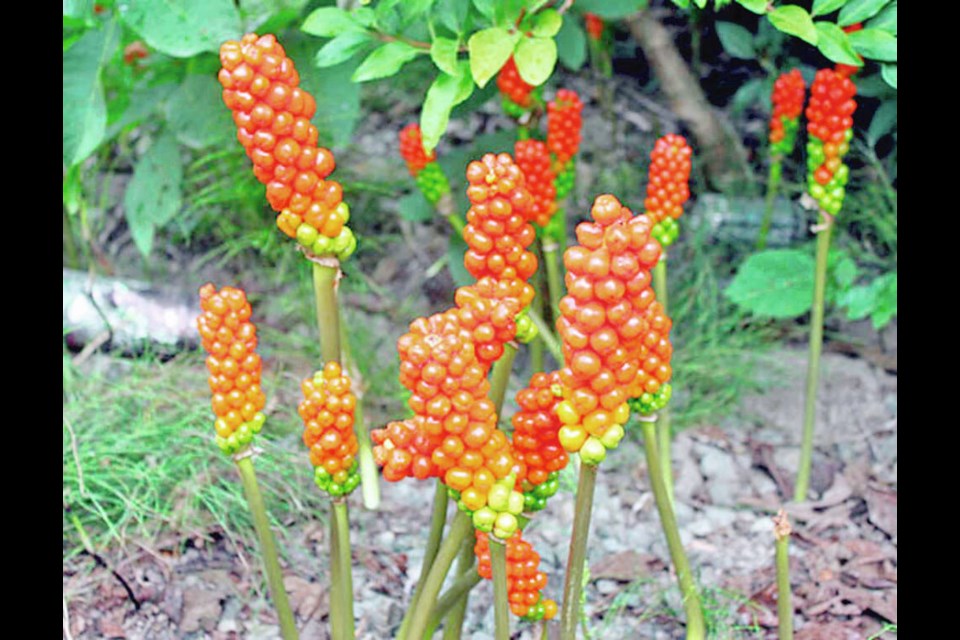The Horticulture Centre of the Pacific is warning gardeners to be on the lookout for Italian arum, or Arum italicum, an attractive but extremely invasive poisonous plant that’s jumped the border from Washington state and is quickly spreading through Greater Victoria.
Although it’s pretty, with its arrowhead leaves with silver veins, yellow flowers and orange-red clusters of fruits — depending on the season — Arum italicum is a toxic and noxious weed. Once established, it’s extremely difficult to eradicate. It can be poisonous if ingested and cause skin irritations when touched.
“Italian arum is poisonous, harms riparian and other sensitive habitats and is extremely difficult to control,” the horticulture centre said in a Facebook post.
“It has escaped in several counties in western Washington and is invading more areas rapidly.”
Italian arum’s tubers multiply yearly to create new plants and the plant is spreading via yard debris and contaminated compost and by birds spreading seeds.
In areas of Washington state, including parts of the San Juan Islands, Italian arum is escaping from gardens into natural areas, and shading and pushing out native plants. The state reports that controlling it is a high priority, as the plant is jumping from urban areas into forests and along streams.
“So far infestations around Washington and Oregon have proven nearly impossible to kill,” said Washington’s Noxious Weed Control Board. “A two-acre infestation on Lopez Island actually worsened after it was repeatedly mowed, dug, torched [in winter], and then covered with a heavy tarp.”
Herbicides have killed foliage, but damage to the tubers “was only variable,” it added.
The state board suggests homeowners can try to dig out small infestations, taking care not to break tubers. “Improper digging will only spread the plant,” the agency said in a notice. “At minimum, cut and bag the fruit in August, before it scatters its seeds.”
Discarded plants and tubers should be placed in plastic bags in the trash, it said.
dkloster@timescolonist



